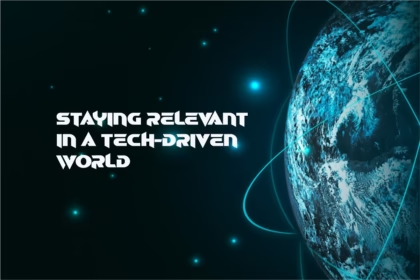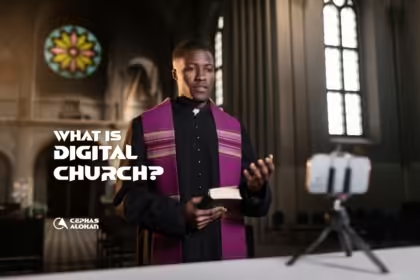When you are called into digital ministry, understanding your Soul Persona is essential for targeting your message to the specific group God has called you to reach. The Soul Persona is a semi-fictional representation of the souls God has placed in your path to minister to online. Defining the characteristics of your Soul Persona helps you craft content and develop ministry strategies that address their needs, challenges, and spiritual growth.
Key Characteristics to Outline for Your Soul Persona
1. Name and Background
Start by giving your Soul Persona a name and background. Even though this is a semi-fictional representation, naming it humanizes the persona and gives you a clear picture of the person you are ministering to.
- Name: Choose a name that aligns with your audience’s cultural and spiritual background. For example, if your target group is young Christian professionals, you might name your persona “Sarah,” a 25-year-old graduate working in a corporate setting.
- Background: Describe their background in terms of family, occupation, and education. Are they students, young professionals, or stay-at-home parents? This background information will help you create content relevant to their daily experiences and spiritual struggles.
2. Demographics
Demographics are key because they help you understand the broader social and cultural context in which your audience operates. This can guide your tone, style, and platform choices.
- Age: Is your Soul Persona a teenager, young adult, middle-aged, or older adult? Different age groups have different spiritual needs and content preferences.
- Gender: While your content may be relevant to all genders, knowing whether you are primarily speaking to men or women can help you shape your messaging.
- Education Level: Understanding your audience’s education level is important for crafting your content. Is your Soul Persona highly educated, or are they still in school? This will determine how deep or simple your teachings need to be.
- Location: Are you ministering to people in urban areas, rural areas, or a specific country? Location can affect how your audience interacts with digital platforms and what challenges they face in their spiritual journey.
3. Spiritual Background and Maturity
The spiritual state of your Soul Persona is arguably one of the most critical factors to consider. Where are they in their faith journey?
- Spiritual Stage: Are they new believers, seasoned Christians, or people who have drifted from the faith? Understanding this will help you create content that meets them where they are. For example, new believers may need content that teaches basic doctrines, while mature Christians might seek deeper theological discussions.
- Church Involvement: Are they active in their local church, or are they seeking a way to engage with Christianity online? This information helps you decide whether your digital ministry should serve as a complement to local church participation or a primary source of spiritual growth.
- Denominational Background: If relevant, consider whether your Soul Persona comes from a particular denominational background (e.g., Pentecostal, Baptist, non-denominational). This can influence how they interpret spiritual messages and what type of content resonates with them.
4. Spiritual Needs and Challenges
The next step is to define your Soul Persona’s spiritual needs and the challenges they face in their walk with God.
- Spiritual Needs: What specific spiritual questions or issues is your audience grappling with? Do they need guidance on prayer, Bible study, living out their faith in a digital world, or balancing work-life and spirituality?
- Spiritual Challenges: What are the roadblocks preventing them from growing spiritually? Are they facing temptation, digital distractions, a lack of accountability, or confusion about their calling? Knowing their spiritual struggles allows you to create content that provides solutions and encouragement.
5. Emotional and Psychological Profile
Emotional and psychological needs play a big role in how your audience interacts with your content. Your Soul Persona might be dealing with a range of emotions that impact their spiritual life.
- Emotional State: Are they anxious, lonely, or confused? Are they seeking peace, purpose, or community? Addressing emotional needs in your content makes it more relatable and impactful. For example, if your audience is struggling with loneliness, you can create content that emphasizes God’s presence and the importance of community in the digital age.
- Pain Points: What are their primary emotional struggles? Do they feel disconnected from God or discouraged by their circumstances? Identifying their pain points helps you provide biblical encouragement and solutions that meet them at their point of need.
6. Technological Comfort Level
Since your ministry will primarily occur in the digital space, it’s important to consider how comfortable your Soul Persona is with technology.
- Tech-Savvy: Is your audience familiar with digital platforms, social media, and online tools? If so, you can engage them with more interactive and tech-driven content like webinars, podcasts, and live streams.
- Tech-Challenged: If your audience struggles with technology, you may need to provide simple, user-friendly resources. For example, instead of high-tech interactive platforms, you could focus on easy-to-navigate blogs or email newsletters.
7. Preferred Content Formats
The way your audience consumes content can vary based on their preferences and lifestyles. Some may prefer reading, while others gravitate toward visual or auditory content.
- Text-Based Content: Blogs, articles, devotionals, and downloadable PDFs might appeal to people who enjoy reading.
- Video Content: If your Soul Persona spends a lot of time on platforms like YouTube or Facebook, then short teaching videos, tutorials, or live streaming may be more effective.
- Audio Content: Podcasts or audio messages might resonate with individuals who prefer to listen while on the go.
- Visual Content: Graphics, infographics, or short clips on platforms like Instagram or TikTok may appeal to a younger, visually-oriented audience.
8. Goals and Aspirations
Another crucial element to understand is the goals and aspirations of your Soul Persona. What are they striving for in their spiritual journey and in life?
- Spiritual Growth: Your audience may desire to grow in their relationship with God, become more active in ministry, or find their purpose in life. Understanding these aspirations helps you craft messages that inspire and guide them toward those goals.
- Practical Goals: In addition to spiritual goals, they might also have practical life goals like balancing faith with work, managing family responsibilities, or overcoming challenges in their personal lives. Your ministry content can address these areas from a biblical perspective.
9. Values and Beliefs
Your audience’s values and core beliefs should align with the core message of your ministry. Knowing these helps you to better connect and communicate.
- Core Values: What does your Soul Persona value most? Is it family, community, faith, or personal integrity? Craft your message in a way that resonates with their values while pointing them toward biblical truth.
- Belief System: Understanding their foundational beliefs allows you to build trust. Are they strong in their faith, or are they still exploring Christianity? This helps you know where to start in guiding them to deeper truths.
| Category | Details | Example |
| Name and Background | A semi-fictional name and description of the persona. | Name: Sarah. Background: 25-year-old graduate working in corporate. |
| Occupation | The profession or current job status of your Soul Persona. | Corporate employee, student, stay-at-home parent, entrepreneur. |
| Age | The age or age range of your target Soul Persona. | 18-25, 26-35, 36-45, etc. |
| Gender | The gender your ministry primarily focuses on, if applicable. | Male, female, or all genders. |
| Location | The geographic location of your audience (country, urban/rural setting). | Urban, suburban, rural, or a specific country/region like Nigeria or North America. |
| Education Level | The level of education attained by your audience. | High school graduate, college student, university graduate, etc. |
| Spiritual Stage | The stage of their spiritual journey. | New believer, seasoned Christian, seeking/non-believer. |
| Church Involvement | Their level of involvement in church activities. | Active church member, occasional attendee, seeking digital church engagement. |
| Denominational Background | Their denominational or non-denominational affiliation, if relevant. | Pentecostal, Baptist, Anglican, non-denominational, etc. |
| Spiritual Needs | The spiritual questions or needs they are grappling with. | Learning to pray, understanding God’s will, overcoming doubt, discipleship growth. |
| Spiritual Challenges | The obstacles hindering their spiritual growth. | Temptation, digital distractions, lack of accountability, time management. |
| Emotional State | Their emotional condition, which affects their spiritual life. | Anxious, lonely, confused, searching for purpose. |
| Pain Points | The emotional or practical struggles your persona faces. | Loneliness, career stress, family responsibilities, spiritual dryness. |
| Tech-Savvy Level | Their comfort level with digital tools and platforms. | Beginner, intermediate, expert. |
| Preferred Content Formats | The type of content your Soul Persona prefers. | Blogs, videos, podcasts, infographics, devotionals. |
| Spiritual Goals | The goals they have in their spiritual journey. | Grow in prayer, strengthen faith, lead others to Christ, serve in ministry. |
| Practical Goals | The non-spiritual goals they may also have. | Balancing work and faith, managing family, personal development. |
| Core Values | The values that guide their decisions and life choices. | Family, faith, integrity, community, personal growth. |
| Belief System | Their foundational beliefs or worldview. | Biblical worldview, exploring Christianity, strong faith in Christ, questioning their beliefs. |
Let’s have this example
| Category | Details | Example |
| Name and Background | A semi-fictional name and description of the persona. | Name: Alex Thompson. Background: 30-year-old graphic designer, single, living in an urban area. Raised in a non-religious household. |
| Occupation | The profession or current job status of your Soul Persona. | Graphic Designer at a marketing firm. |
| Age | The age or age range of your target Soul Persona. | 30 years old. |
| Gender | The gender your ministry primarily focuses on, if applicable. | Male. |
| Location | The geographic location of your audience (country, urban/rural setting). | Urban area, New York City. |
| Education Level | The level of education attained by your audience. | Bachelor’s degree in Graphic Design. |
| Spiritual Stage | The stage of their spiritual journey. | Non-Christian, exploring spirituality and seeking understanding about God. |
| Church Involvement | Their level of involvement in church activities. | No regular church involvement, attended a few services and spiritual events out of curiosity. |
| Denominational Background | Their denominational or non-denominational affiliation, if relevant. | No specific denominational background; raised in a non-religious environment. |
| Spiritual Needs | The spiritual questions or needs they are grappling with. | Seeking answers to life’s big questions, understanding the concept of God, exploring purpose. |
| Spiritual Challenges | The obstacles hindering their spiritual growth. | Uncertainty about where to begin, confusion about religious teachings, skepticism about organized religion. |
| Emotional State | Their emotional condition, which affects their spiritual life. | Curious but often confused, feeling a sense of emptiness, searching for deeper meaning. |
| Pain Points | The emotional or practical struggles your persona faces. | Feeling disconnected, struggling with existential questions, frustration with conflicting messages. |
| Tech-Savvy Level | Their comfort level with digital tools and platforms. | Intermediate; comfortable using social media and online resources for research. |
| Preferred Content Formats | The type of content your Soul Persona prefers. | Videos (e.g., YouTube teachings), podcasts (e.g., interviews with spiritual leaders), engaging articles or blogs. |
| Spiritual Goals | The goals they have in their spiritual journey. | To gain a clearer understanding of God, explore various spiritual beliefs, find a resonant path. |
| Practical Goals | The non-spiritual goals they may also have. | Integrate spiritual exploration into daily life, balance curiosity with practical steps, find supportive community. |
| Core Values | The values that guide their decisions and life choices. | Curiosity, personal growth, open-mindedness, authenticity. |
| Belief System | Their foundational beliefs or worldview. | Exploring different perspectives, seeking personal connection with a higher power, evaluating faith’s relevance. |
Summary of the Persona
Alex Thompson is a 30-year-old graphic designer living in New York City. Raised in a non-religious household, Alex is currently exploring spirituality and seeking a deeper understanding of God. Although not actively involved in a church, Alex has attended a few services and spiritual events out of curiosity. He holds a Bachelor’s degree in Graphic Design and is comfortable using digital tools, preferring content such as YouTube videos, podcasts, and engaging articles.
Emotionally, Alex feels a sense of emptiness and confusion, struggling with existential questions and conflicting spiritual messages. He is open-minded and values personal growth and authenticity. His primary spiritual goal is to gain a clearer understanding of God and explore various spiritual beliefs. Practically, Alex aims to integrate his spiritual exploration into daily life, balancing curiosity with actionable steps and finding a supportive community.
Alex’s core values include curiosity, open-mindedness, and authenticity, guiding his quest for spiritual fulfillment and understanding.







Interested in learning about this program